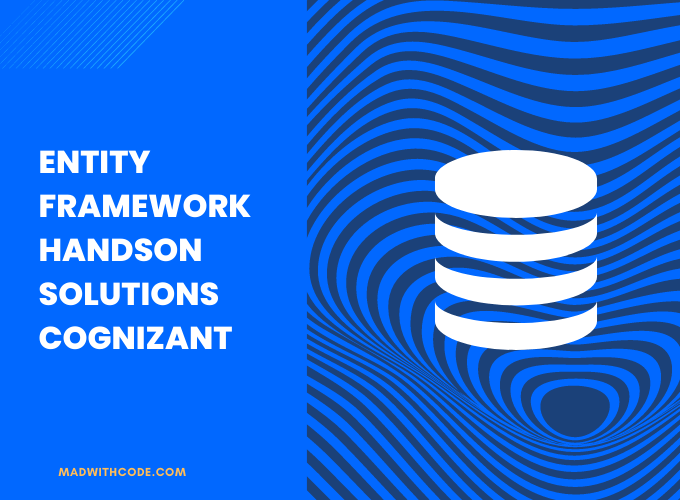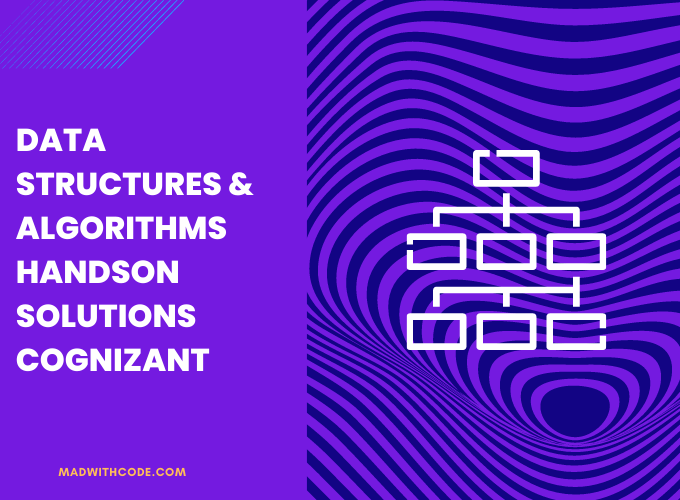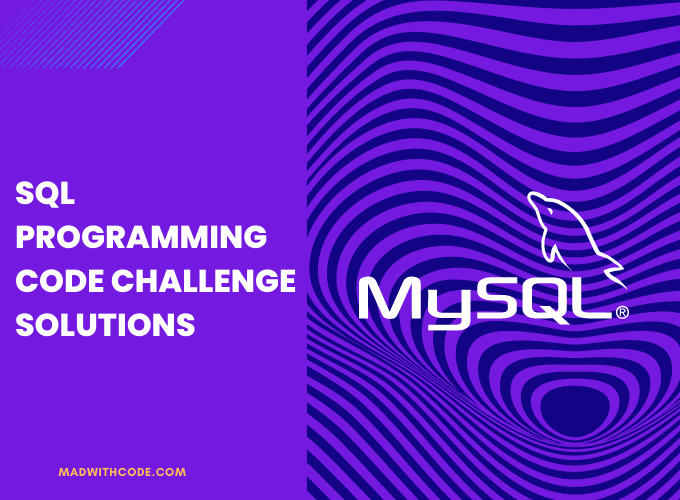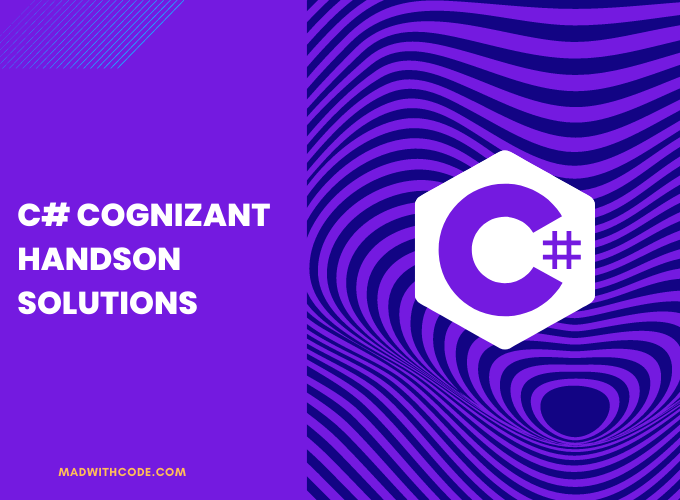BookEntry_FluentAPI Entity Framework Cognizant Handson
In this post, we are going to cover BookEntry_FluentAPI Handson which is asked under the Entity Framework Topic in Cognizant Solutions.
Building model Code first Approach, Fluent Api, Querying data using LINQ
BookEntry_FluentAPI
Program.cs
using System;
using System.Collections.Generic;
using System.Linq;
using System.Text;
using System.Threading.Tasks;
// Personnal Comment If You Leave This File As It & Try To
// Evaluate it will successfully evaluated
namespace Exercise1 //DO NOT change the namespace name
{
public class Program //DO NOT change the class name
{
static void Main(string[] args) //DO NOT change the 'Main' method signature
{
//Implement code here
}
}
}
Book.cs
//THIS IS FOR REFERENCE ONLY. YOU ARE NOT REQUIRED TO MAKE ANY CHANGES HERE
using System;
using System.Collections.Generic;
using System.Linq;
using System.Text;
using System.Threading.Tasks;
namespace Exercise1
{
public class Book
{
public int BookId { get; set; }
public String BookName { get; set; }
public String BookAuthor { get; set; }
public String BookGenre { get; set; }
public double BookPrice { get; set; }
}
}
Also Read : StudentDetails Using CodeFirst Entity Framework Handson Solution Cognizant
BookUtil.cs
using System;
using System.Collections.Generic;
using System.Linq;
using System.Text;
using System.Threading.Tasks;
namespace Exercise1 //DO NOT change the namespace name
{
public class BookUtil //DO NOT change the class name
{
public Book AddBook(Book book) //DO NOT change the method Name and Signature
{
using (var db = new LibraryContext())
{
var b = db.Books.Add(book);
db.SaveChanges();
return b;
}
}
public List<Book> GetBookByGenre(String Genre) //DO NOT change the method Name and Signature
{
using (var db = new LibraryContext())
{
var books = db.Books.Where(b => b.BookGenre == Genre);
return books.ToList();
}
}
public List<Book> GetBooksList() //DO NOT change the method Name and Signature
{
using (var db = new LibraryContext())
{
var books = db.Books;
return books.ToList();
}
}
public Book UpdateBookPrice(int NewPrice, int Bookid) //DO NOT change the method Name and Signature
{
using (var db = new LibraryContext())
{
var book = db.Books.Single(b => b.BookId == Bookid);
book.BookPrice = NewPrice;
db.SaveChanges();
return book;
}
}
public Book DeleteBook(int BookId) //DO NOT change the method Name and Signature
{
using (var db = new LibraryContext())
{
var book = db.Books.Single(b => b.BookId == BookId);
var delBooks = db.Books.Remove(book);
db.SaveChanges();
return delBooks;
}
}
}
}
LibraryContext.cs
using System;
using System.Collections.Generic;
using System.Linq;
using System.Text;
using System.Threading.Tasks;
using System.Data.Entity;
namespace Exercise1 //DO NOT change the namespace name
{
class LibraryContext : DbContext
{
public DbSet<Book> Books { get; set; }
public LibraryContext() : base("name=BookStore") { }
protected override void OnModelCreating(DbModelBuilder modelBuilder)
{
modelBuilder
.Entity<Book>()
.ToTable("BookDetail");
modelBuilder
.Entity<Book>()
.Property(b => b.BookId)
.HasColumnName("Book_Id");
}
}
}





